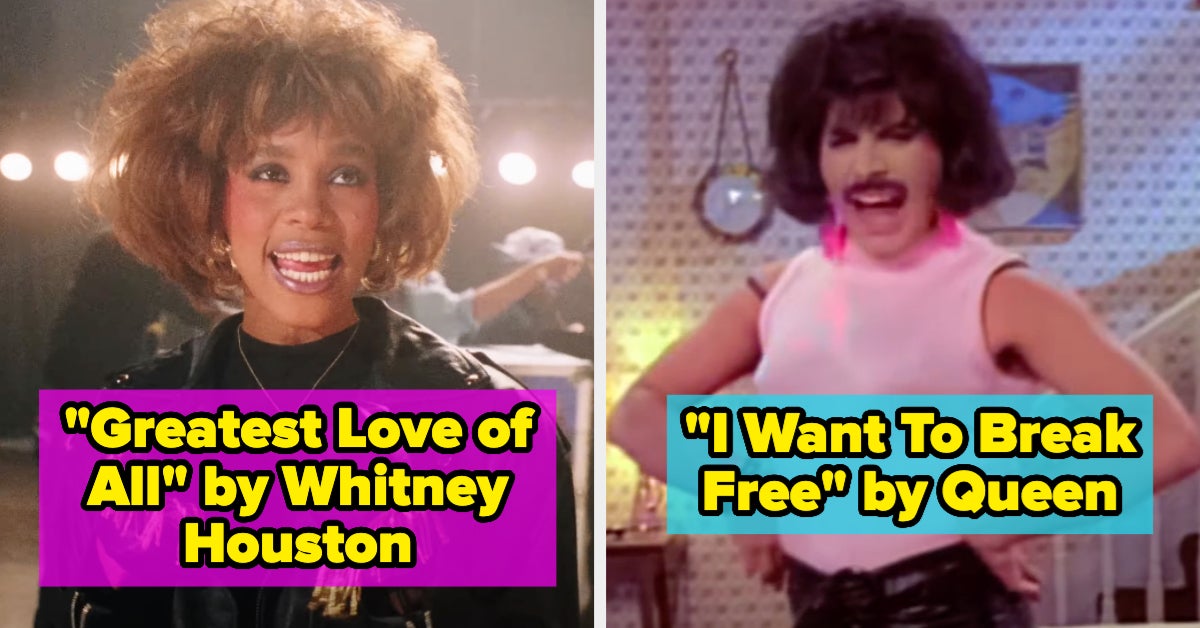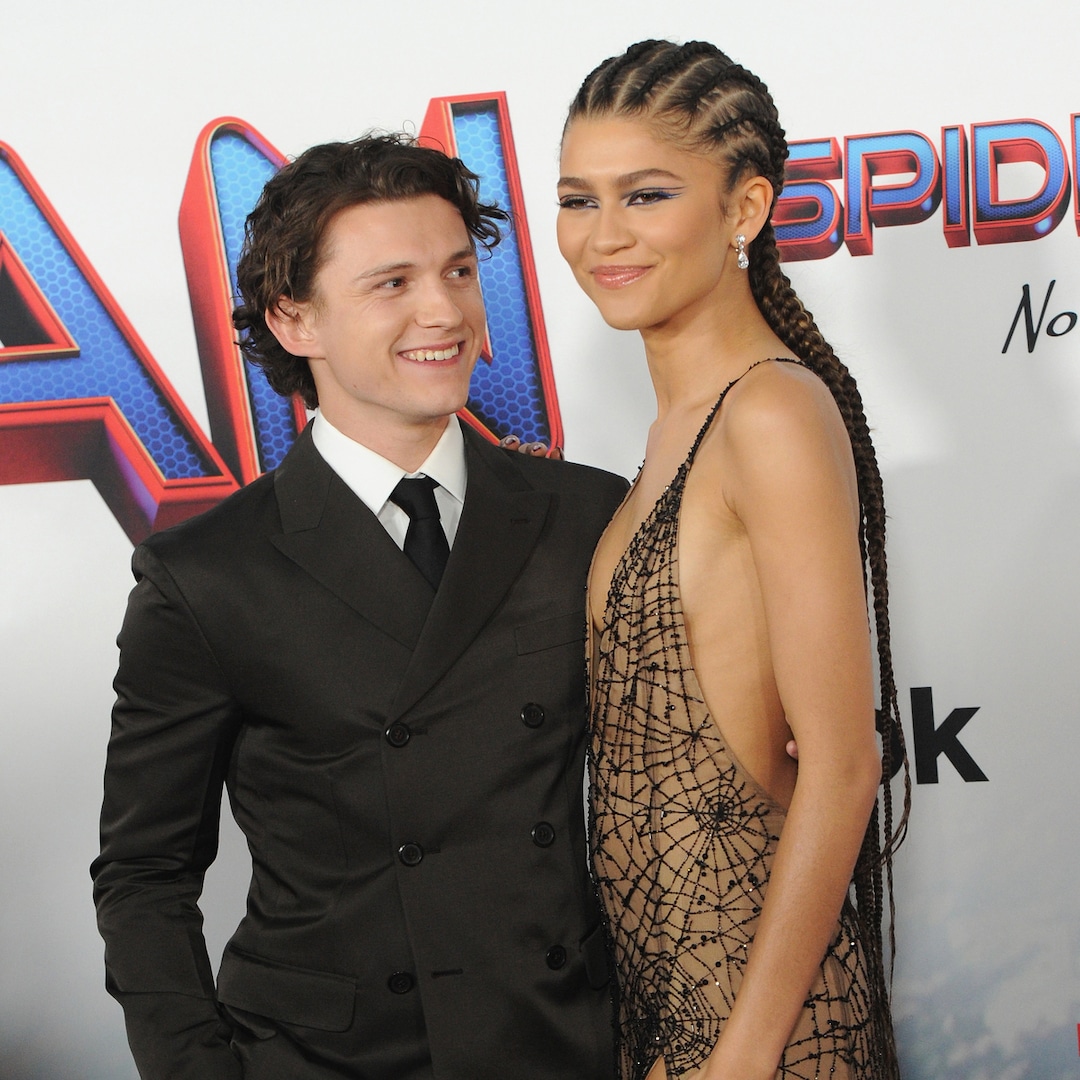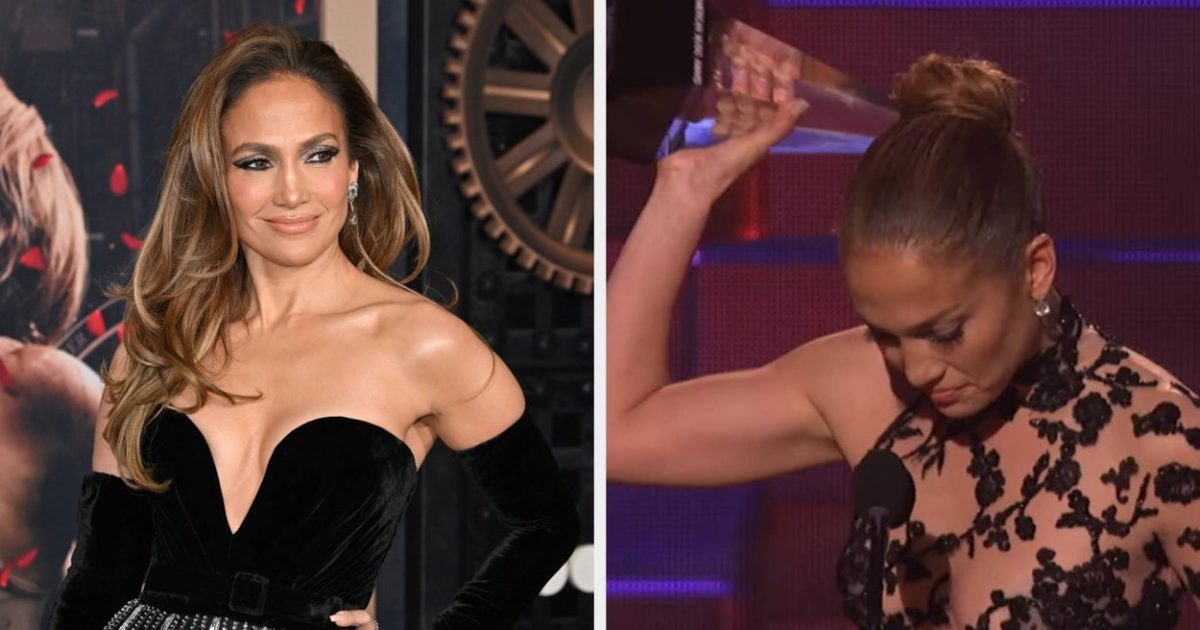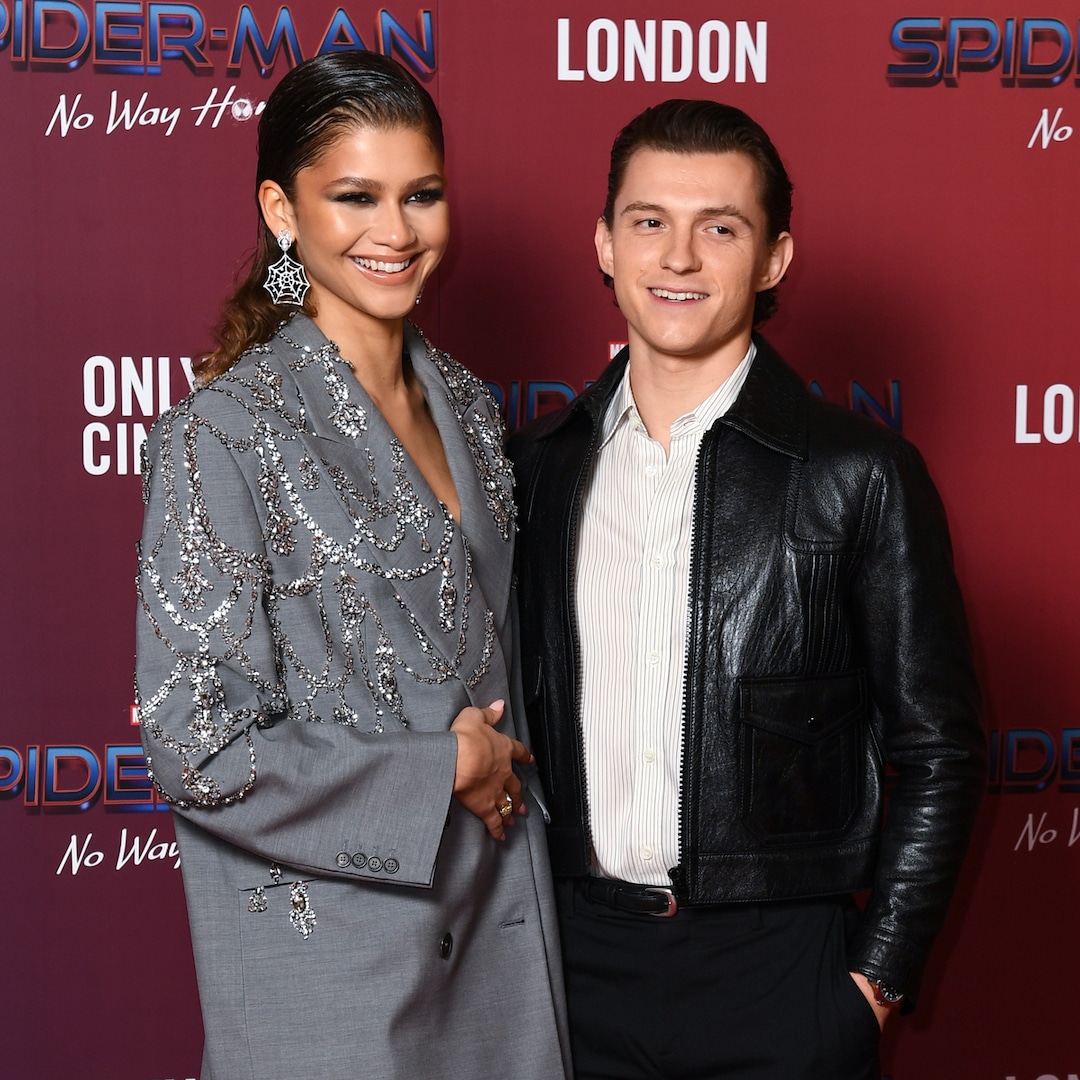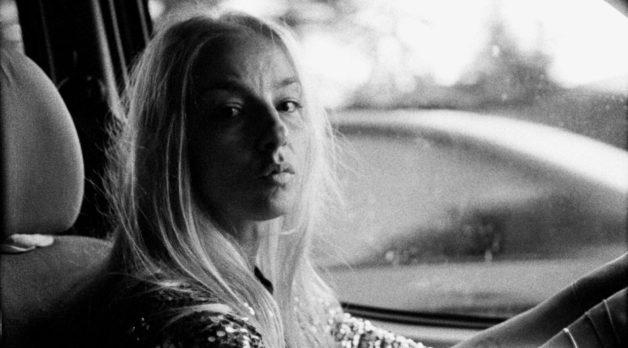
“Rules Stop Me from Daring”: Radu Jude on Do Not Expect Too Much from the End of the World
Aug 10, 2023
Ilinca Manolache in Do Not Expect Too Much From the End of the World
“Have you ever seen Romanian TikToks?” It’s a torrid afternoon in Locarno and Radu Jude and I are sitting in a container repurposed as an interview booth, a couple of days after the premiere of his latest, Do Not Expect Too Much from the End of the World. Social media play a prominent role in the film, an electrifying snapshot of life in the 21st century designed to both immortalize our back-to-front digital zeitgeist and dissect its textures.
A collage straddling black comedy and road movie, Do Not Expect centers on Angela (Ilinca Manolache), an overworked production assistant whose company has been hired by Austrian entrepreneurs to shoot a safety-at-work video for their Romanian staff. Jude, who also penned the script, tails Angela as she drives around Bucharest to audition people who’ve been disabled at work and are willing to admit it was all due to their failure to take the most basic precautions—to take the blame for their bosses, that is, in exchange for a €500 reward.
But her hustles are interspersed with fragments from another film, Lucian Bratu’s Angela Moves On (1981), whose titular protagonist also zigzags around the capital city making ends meet as a taxi driver. An early intertitle suggests the two features exist “in conversation” with each other, but their relationship—notwithstanding the many parallels between the two eras and the adversities both Angelas must confront (bilious misogyny, economic hardships)—is a lot more than a history of continuities. Bratu’s film, as Jude would point out in our chat, is a profoundly subversive work—that rare project produced under Ceaușescu’s communist regime that managed to elude the censors and capture glimpses of the country’s rampant poverty no other film of the era ever dreamed to make public.
Jude’s too radiates a certain subversiveness. If the video Angela is working on boils down to a reminder to follow the rules, Do Not Expect keeps breaking them. The film switches from celluloid to digital, hopscotching across Bratu’s drama, Angela’s present-day urban odyssey (shot in grainy 16mm by Marius Panduru) and glimpses of her online alter-ego Bóbita, an Andrew Tate-type caricature through which she spits all kinds of insults at women via TikTok clips that pepper her journey. Sprawling and sinuous, Do Not Expect trades a linear three-act structure for more kaleidoscopic canvas; that freeform quality and endless curiosity are perhaps its greatest assets. Filled with countless references to movies and books and bursting with jibes at the country’s elite, its religious figures and the foreign powers pillaging the country, Do Not Expect exists in a porous universe open to all sorts of influences and stimuli. Its formal inventiveness is a testament to Jude’s creativity as much as to the vitality the medium can radiate when one isn’t afraid to test its limits and possibilities.
Filmmaker: Can we start with the title? I know the quote is from Polish poet Stanisław Jerzy Lec, but I was curious to hear what drew you to it.
Jude: Well, it’s a contradiction, which is what I wanted. It conveys this feeling of exhaustion, on the one hand, but at the same time it’s obviously ironic. You can take it as a joke, or as something serious. And I think the film in a way does the same thing.
Filmmaker: Speaking of irony, I remember you calling your previous, Bad Luck Banging or Loony Porn, a “humorless comedy”—
Jude: It is!
Filmmaker: But that film, much like this, is full of hilarious detours and interludes. Which made me wonder about the role humor plays in your work. You seem to wield it as a kind of weapon that allows you to both ridicule the powers that be and give back some kind of dignity to the downtrodden. Like Boccaccio, say, or Dario Fo.
Jude: Dario Fo? I’ve never read Dario Fo. Is he good? Should I read him?
Filmmaker: Yes! He used irony in a very similar way.
Jude: Alright, then I’ll make a note. I haven’t heard his name in 30 years. [pulls out his phone, types] But yeah. The question of humor is a very complicated one, because there are all kinds of it. Aggressive humor, lighthearted humor… I’m always a little reticent to use the word because I think it covers so many different things. For me, it’s just one or two.
The first is that the humor I’m interested in is the kind that helps you see a situation in a new light. Like, just look at us. We’re sitting together, looking all serious, but when you stop and think about it the whole scene is just ridiculous. They’re keeping us in like… what is this, a container? It’s dystopic. So, on the one hand, I’m drawn to the sort of humor that comes from changing your perspective on things. There’s also the fact that I’m not a man of action, and I always feel that humor could be at least a desire to think again. And I’m happy to let my scenes stretch a second longer than they should, because often the humor I’m after lies in those moments.
The second thing is that I feel that humor—especially as it’s used in this film—can turn into an edgy and powerful critical tool, thanks to the ways it can inflate and exaggerate things. Like the way caricatures work: you take a detail and blow it out of proportion. The sort of humor you’d find in Charlie Hebdo, for instance, which I totally appreciate. It works through these absurd exaggerations, and it winds up critiquing things through them. That’s the principle we followed in this film. That’s my sense of humor, but also the actors’. Angela’s social media alter ego, Bóbita, was the actress’s own creation.
Filmmaker: Did she come up with that before the film?
Jude: Oh, yes! Years before we started working together, actually. When I reached out to Ilinca [Manolache], I told her I’d need to cast both her and her avatar.
Filmmaker: You’ve often mixed highbrow and lowbrow actors in your projects. Correct me if I’m wrong, but in Bad Luck Banging, you recruited seasoned thespians and others who’d only worked in sitcoms.
Jude: The worst sitcoms! [laughs]
Filmmaker: What’s so special about that amalgam?
Jude: Well, there’s this book by Adam Gopnik and Kirk Varnedoe, High and Low—it’s about the relationship between modern art and popular culture. And I think the answer is right there. The book argues that popular culture tends to blend high and lowbrow, but for me, one needs to appreciate both as distinct things. I always find it very populist when people say they like cinema to only be lowbrow. And it’s funny because that impulse sometimes comes from intellectuals, film critics and filmmakers, too. I don’t have anything against people who only want to watch, I don’t know, Chuck Norris films. But for me, to really love cinema, to really love culture, you need to be able to enjoy the two impulses equally. There’s nothing more grating than the middlebrow. I’d much rather see either things that are either very lowbrow or highbrow.
Filmmaker: I think the two impulses always exist in a dialectical relationship in your films, frictions which you don’t necessarily resolve.
Jude: Yes! Absolutely.
Filmmaker: It reminds me of the subtitle of Bad Luck Banging: “a sketch for a popular film.” Would you apply the same label to this new film?
Jude: I’d probably call it a sketch for a social film. Or a film with a social issue. But this idea of a sketch, come to think of it—I guess Do Not Expect might be more of an actual sketch than Bad Luck Banging. I think a film-sketch suggests a series of potentialities that might be killed in a more well-rounded work. In Do Not Expect, for instance, I had these two stories, which are basically things that happened to me or to people around me. The first was the story of a young production assistant I knew, who was so overworked he died in a car crash after falling asleep at the wheel. And the second is a story that happened to me when I was directing a safety-at-work video for a corporation. They seemed to have all the good intentions in the world, until I discovered all they wanted was to fool their employees. The whole film was lifted from my experience, basically. I had these two stories, but I didn’t know how to squeeze them into one. My worry was that I’d have to cut out a lot of dialectical elements, as you call them, a lot of contradictions—things that would not work in a well-rounded story. But I wanted those tensions to be there. So, I decided to connect these two ideas, but also keep them separate, somehow. Of course, it was hard to justify that during the financing—why two stories, why don’t you just make one? So I ended up calling them A-story and B-story. The second one is my B movie, basically. It’s shorter, faster and more sensational. You get two movies for the price of one. I think it’s a bargain.
Filmmaker: You also intersperse Angela’s journey through Bucharest with glimpses of a 1981 film, Angela Goes On, by Lucian Bratu. An early intertitle tells us the two films exist “in conversation” with each other, and I wanted to know what kind of relationship you think that is, exactly.
Jude: That’s difficult to answer. When I had a clearer idea of what my story was going to be I started searching for models of Romanian road movies with women at their center. And there were none aside from Bratu’s, which isn’t that well known, though I have a feeling that young critics are now rediscovering it and praising it as a proto-feminist film—rightly so. Beyond that, what was key for me was that Bratu’s [film] was a portrait of a woman living under the communist regime, a time when people had to deal with political censorship. I wanted to juxtapose that portrait with that of a woman with a roughly similar job in present-day Romania—our political freedom today compared to the restrictions of Ceaușescu’s regime back then.
Filmmaker: But it’s a history of continuities as much as changes. Watching the film seesaw between the storylines, I couldn’t help but notice some similarities between the two eras. The rampant misogyny, for one, but also the economic hardships that affect both Angelas.
Jude: Of course, and that’s because Angela Goes On—a film that was ultimately approved by Romanian censors, remember—is very subversive, and so was Bratu. But you only catch glimpses of that subversiveness in the few vérité shots scattered here and there, details you see from the window of Angela’s taxi, for a split-second only. If you look closely, you’ll notice people waiting in line for food, which was something you were not allowed to show—ever! So, I decided to slow down these moments, for you to see those details. You can now see the poverty, the social problems—there are all kinds of hints. I wanted to praise that film’s subversiveness.
Filmmaker: I’m happy to hear you use that word, because it reminds me of something you said about Do Not Expect: “My films are becoming more and more amateurish.” There’s something very rebellious about that quality, and the sense of playfulness that transpires from them.
Jude: That’s actually a quote from Rivette, who was talking about Rossellini’s films, and it goes back to what we were saying earlier about structure. Cinema, not to mention television, the stuff you see on streaming platforms these days, is full of rules that dictate how scripts should work, how the credits should look, how you should go about securing financing… Everything is predetermined, controlled. I used to work in theatre too, and there it was very different. Maybe because there’s less money involved, I don’t know. You may have fewer possibilities of expression, but it’s much more free. And in cinema, the only ones who don’t respect the rules are either the rebel filmmakers, the visionaries—Godard, for one, who’s possibly the greatest example of that—or the amateurs, who break the rules because they don’t know them, or just don’t care.
I struggled so much to become a professional filmmaker, so to speak, that now I feel like I’m stuck in the middle. Not just professionally, but psychologically, too. Because these rules stop you from daring. So, I try, in a conscious way, to regain the status of amateur. I think Rossellini is a model of that, and that Rivette was right. No one thinks much of the films Rossellini made after the 1960s. No one speaks of the stuff he made in India or his TV movies. I remember watching some of them for the first time 15 or 20 years ago, and thinking they were absolutely worthless. How could Rossellini turn into such a sloppy filmmaker? But now that I’m reading more about him and watching those films again, I actually love them. Because they’re against the rules. He despised cinema, and still he wanted to make it. And these late films came out of that dialectic, those contradictions. They were not successful at all—I mean, they’re no Stromboli or Voyage to Italy—but they’re still really, really good things. And that amateur spirit today lives outside traditional cinema. Have you ever seen Romanian TikToks?
Filmmaker: I can’t say that I have.
Jude: Here, let me show you. [Jude pulls out his phone and starts scrolling through a handful of TikTok clips—synchronized dances, lip sync routines, pet antics, pranks, sight gags] These are things you’re not going to find in movies. This is amateur cinema. And to me, this stuff is much more interesting, much more provocative and perverse, than all the films being released today. Of course I see the problems with the platform, the toxic ideology behind it. But if you’re honest with yourself, as a filmmaker, you have to admit that this thing is way more powerful than what we do.
Filmmaker: Like your film and Bratu’s, all these images—the TikTok clips, the few Zoom calls, the fragments from Angela Goes On and the black-and-white sections of your own Angela’s present-day rides through Bucharest—exist in conversation with each other. I was curious to know what kind of tension you see between them.
Jude: What I wanted to do with the film was create a land of cinema, so to speak, where all these images and different footage could coexist and collide. I don’t know what kind of depth might transpire from their interactions, but I believe cinema is the art of surfaces, and that the more you work on those surfaces, the easier it is to see a certain depth in the way they interact. I might be wrong, but for me cinema all starts from the surfaces. And if you describe your surfaces well enough, then some fascinating ideas might appear.
Filmmaker: Could you say more about your rationale for switching between different looks in the film—from the black-and-white 16mm stock of Angela’s rides to the segments you shot in digital? What informed the discussions with your cinematographer, Marius Panduru?
Jude: The shifts came from necessity. As I was trying to incorporate the archival images into the film, I was struggling to make them look different from the rest. At first I thought the present-day sections with Angela driving around Bucharest could be shot on a phone. But we already had the social media clips of her Bóbita character, and I wanted each thing to have its own distinct texture. So, I thought I’d shoot the contemporary segments in color and just grade them differently, kind of what Soderbergh did with Traffic, where the Mexican part is yellowish and the other blueish. Until I decided to make it black and white, in 16mm. We had a lab in Hungary, and it wasn’t that expensive—if you don’t shoot a lot of film stock, that is. And I didn’t want that! I wanted to do it like Warhol: very fast, very few takes, always receptive to the unexpected, the accidents. We got to do a test and pushed the film stock, in the lab, so it’s very grainy. It was a learning process, which I enjoyed so much. I genuinely don’t know how long we’ll be able to use this format—I hope it won’t go away anytime soon—but I was eager to take the advantage and explore it before it goes extinct.
Filmmaker: At the Berlinale’s awards ceremony earlier this year, you stated that “scripts are a tool of control for the bookkeepers.” How does your own writing process unfold? Do you come to the shoot with a script you stick to verbatim, or do you make room for improvisation as well?
Jude: It’s a mix. The first version of the script I write is always more conventional, because I know that’s what I need to secure financing. But then I get to work on it more and tweak it. As for the improvisation, it depends on how you define it. I feel when we talk about it we often refer to the way we work with actors. But for me, what was truly improvisational in the film was the way the city and the car rides were not predetermined. Ilinca would start driving, and then, depending on traffic, we’d tell her where to go. That was the kind of improvisation I’d push for. At the same time, I let the film respond to whatever was happening around us. That’s why there are so many elements cribbed from the news, like the death of the Queen of England, or the constant mentions of King Charles, who has an estate in Romania and is a key fixture in our media landscape. Or again Salman Rushdie—events and people who were all topical at the time. That’s because I wanted the film to be anchored to a specific moment and place. I have a feeling many filmmakers often strive to make “universal” or “timeless” films. I’m the opposite. I want my films to feel very local, very specific, very topical. There are those who’d panic at the idea of their films looking old a year or two after their release. But I want that—I want them to feel untimely, anachronistic. That’s what I like as a viewer, too. I’m not interested in perfect films. Sure, when you happen into a great film or a great book that can be a very moving thing. But I’m more interested in finding potentialities in my work, in thinking about ideas. The films themselves may not be perfect or polished. But they’ll hopefully come across more vibrant, more organic and authentic, bursting with all kinds of possibilities.
Publisher: Source link
These Are '80s Songs That Gen X'ers And Old Millennials Grew Up On, And There Is No Way Anyone Under 27 Has Heard All Of These
And if you are over 40, then you probably remember when these were brand-new and not songs kids are discovering on TikTok.View Entire Post › Disclaimer: This story is auto-aggregated by a computer program and has not been created or…
Jan 12, 2025
Tom Holland Asked Zendaya’s Dad for Permission Before Proposing
Tom Holland wove the perfect engagement for Zendaya. Less than a week after the Spider-Man actress debuted a 5-carat diamond ring on her left ring finger at the 2025 Golden Globes, Tom's father Dominic Holland confirmed the couple's engagement, sharing a few parts about the special day, including one important detail.…
Jan 12, 2025
Jennifer Lopez Finally Understands Mi Gente Latino Meme
Jennifer Lopez Finally Understands Mi Gente Latino Meme Kicking off 2025, J.Lo is now promoting Unstoppable, a new biography drama in which she stars alongside Moonlight actor Jharrel Jerome. At the 2011 American Music Awards, Jennifer won Favorite Latin Artist…
Jan 11, 2025
Tom Holland's Dad Shares Insight Into Zendaya Engagement
Tom Holland became the greatest showman for his proposal to Zendaya. Just days after the Spider-Man actress turned heads at the 2025 Golden Globes with a 5-carat ring on that finger, Tom's dad... Disclaimer: This story is auto-aggregated by a…
Jan 11, 2025








